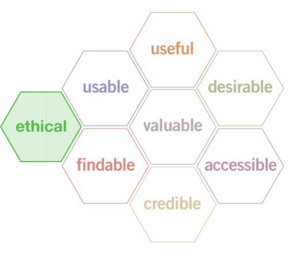Does Being Ethical Pay?
‘Companies spend huge amounts of money to be ‘socially responsible.’ Do consumers reward them for it? And how much?’ is the leader for a short piece titled Does Being Ethical Pay? just published in Sloan Management Review. The quick answer is “Yes”, so it’s worth reading further to learn the specific ways that ethicality plays into people’s spending decisions.
Here’s an excerpt:
In all of our tests, consumers were willing to pay a slight premium for the ethically made goods. But they went much further in the other direction: They would buy unethically made products only at a steep discount.
What’s more, consumer attitudes played a big part in shaping those results. People with high standards for corporate behavior rewarded the ethical companies with bigger premiums and punished the unethical ones with bigger discounts.
At least according to this research, being ethical is a necessary attribute for a product.
There are clear implications for product design: ethics should be on the table as a concern at all stages of product development, from ideation and concepting of new products, to the marketing and sales of finished products.
And these (limited, certainly not the final word) findings match with the idea of adding ethics to the set of important user experience qualities captured in Peter Morville’s UX Honeycomb.
The (Augmented) Ethical UX Honeycomb

How are user experience designers taking the ethical qualities of their work into account?
Related posts: